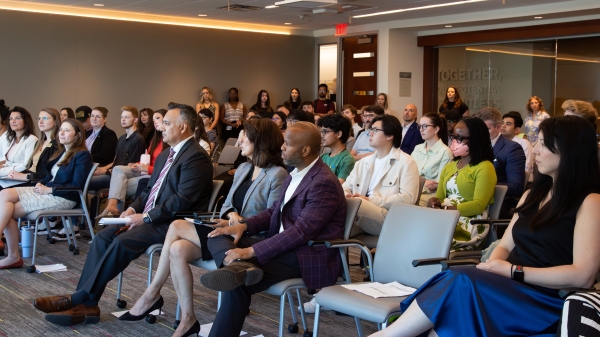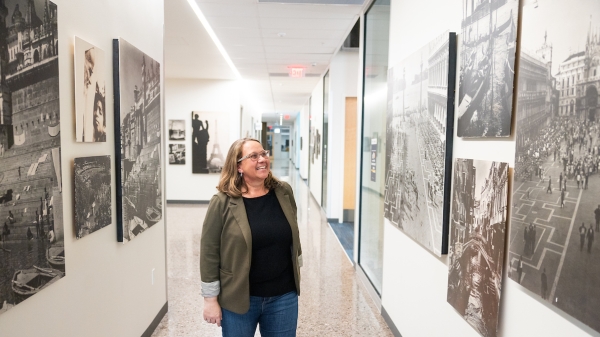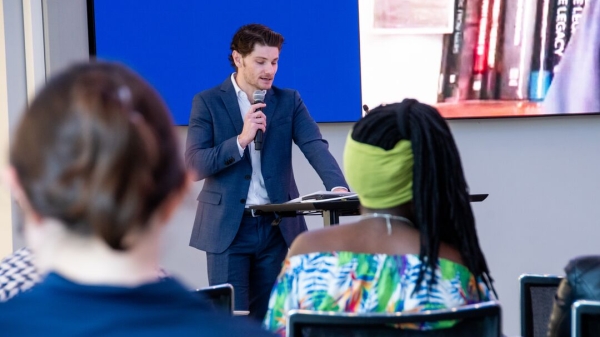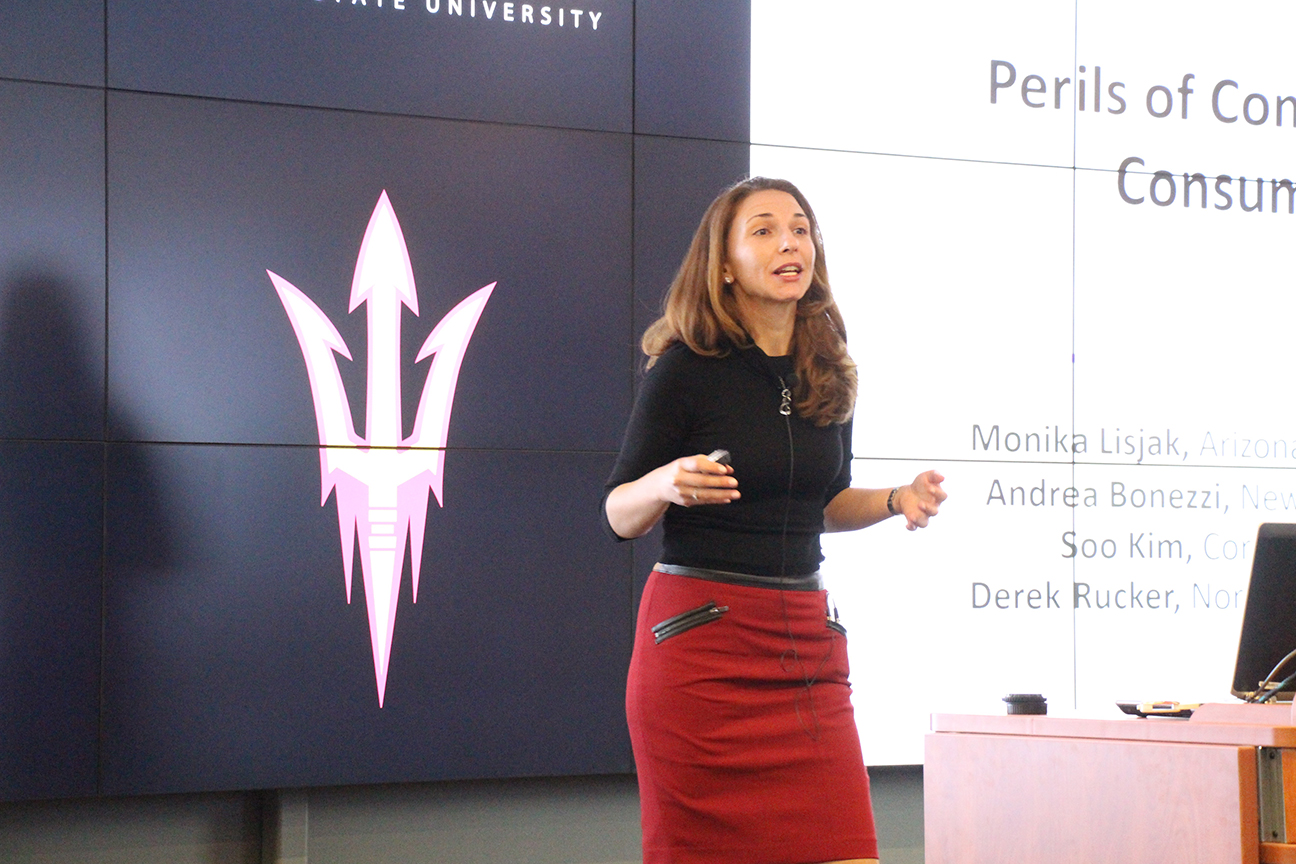When 'retail therapy' makes you feel worse
ASU professor studies whether shopping helps after a setback

If you just flubbed a big work project, you might be feeling down on yourself. Maybe you’ll head to the mall to indulge in a little retail therapy.
Buying products is a common way to make yourself feel better, with half of all Americans reporting that they do it.
But what kind of purchase will make you feel better? A new pair of shoes or a book that describes how to do that project the right way?
New research by an Arizona State University professor Monika Lisjak has found that buying something that reminds you of your setback can make you feel worse.
Lisjak, an assistant professor of marketing in the W. P. Carey School of Business, studied several hundred university students and the article appeared recently in the Journal of Consumer ResearchLisjak's Her co-authors were Andrea Bonezzi, New York University; Soo Kim, Cornell University, and Derek Rucker, Northwestern University..
“What we know from a lot of research is that people do engage in ‘compensatory consumption,’ which is often referred to as ‘retail therapy.’ "
It happens when people feel discomfort because they see a discrepancy between how competent they are and how competent they wish to be.
"One thing consumers do is buy products to try to repair our feelings," she said.
Buying something to improve your competence is called “within-domain compensation,” and it can backfire, she said.
Monika Lisjak studied whether compensatory consumption helped with discomfort. Photo by Cathy Chlarson/W. P. Carey School of Business
“They end up dwelling on their problems,” Lisjak said.
So if you go shopping to feel better and buy a book on how to create a perfect project, it could just remind you over and over of how poorly you did.
That rumination can drain energy, and Lisjak's study found that people in that state were more likely to have low self-control (expressed by eating M&M candies) and were less likely to do well on tasks (solving math problems).
Lisjak said the results could have implications for marketing, with companies being encouraged to sell products that are “across domain” to take consumers’ minds off their setbacks.
In other words, buy the shoes.
More Business and entrepreneurship

Blackstone LaunchPad program to support student entrepreneurship skills
The Blackstone Charitable Foundation has awarded a $1 million grant to establish its signature Blackstone LaunchPad program at Arizona State University, and an additional grant to fund paid summer…

Thunderbird archives: These walls do talk
Editor’s note: This is part of a monthly series spotlighting special collections from ASU Library’s archives throughout 2024. At most universities, if you want to learn about their history, you must…

California roots, global impact: Thunderbird at ASU grad's journey in global management
Editor’s note: This story is part of a series of profiles of notable spring 2024 graduates. Lake Forest, California, native Kyle Kay was attracted to Thunderbird School of Global Management at…
